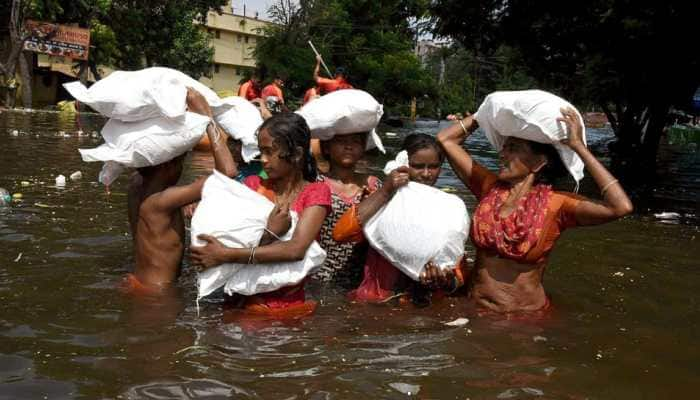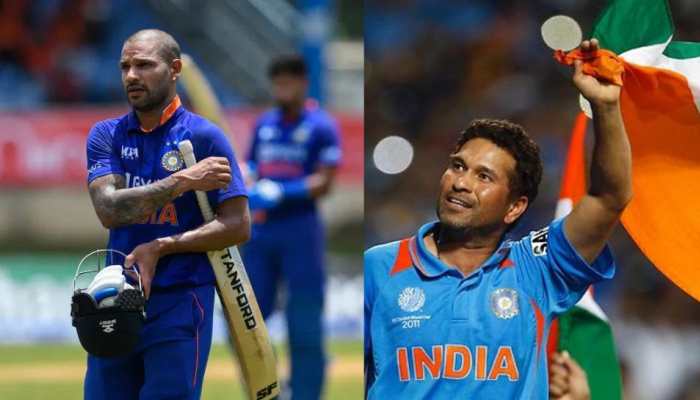Can the cold winter days trigger a heart attack? Expert shares facts about the risk amid the cold wave
Coldwave: This week, Delhi and the whole of North India have been engulfed by biting cold and extreme coldwave conditions, prompting officials to issue a red warning across the states. According to reports, heart attacks and brain strokes brought on by these extremely low temperatures took the lives of those who were unable to escape the grip of the cold wave. Here we have experts share facts and tips to care for the heart during the winter coldwave.
- When a blood clot or blockage forms in the arteries, it can cause a heart attack and stop the flow of blood to the heart
- Protect yourself from the weather by dressing appropriately, paying particular attention to your hands, feet, and head
Trending Photos
) Cold wave alert: Risk of heart attack in winter
Cold wave alert: Risk of heart attack in winter Heart attack during winters: A major health concern that might have adverse effects on your health, specifically your heart, is a drop in mercury levels during the winter. Blood vessels constrict as a result of the cold, raising blood pressure and increasing the risk of heart attack and stroke. Wintertime coronary artery constriction can make angina, or chest pain brought on by coronary heart disease, worse.
As the temperature drops, most hypertensive people experience thickening, clotting, and higher blood pressure, all of which raise the risk of heart attacks.
On Thursday, there were reported deaths in the Kanpur district due to heart attack and brain stroke triggered by these frigid temperatures, with 17 of them passing away before receiving any type of medical care.
Dr Bikram Kesharee Mohanty, Senior Consultant Cardio-Thoracic & Vascular Surgeon (Adult & Paediatric), Visiting Consultant at National Heart Institute, Delhi. Dr Mohanty spoke to Zee News digital about how cold weather can trigger a heart attack.
What causes a heart attack during winter?
The temperature outside has an opposite relationship to blood pressure. The heart must work harder to pump the same amount of blood during the winter as a result of the rise in blood pressure. Our blood arteries constrict to keep our body temperatures stable.
Heart attack is a consequence of blockages in the arteries of the heart and blood is just a liquid carrier just like we commute from one place to another in a vehicle similarly blood carries oxygen across the body from the heart to other organs of the body. And when this blood flow gets restricted due to the blockage in the arteries heart attacks occur.
Who is at risk of a heart attack?
Individuals with heart conditons like hypertension and other heart related issues need to be careful and take proper care of their heart health. Even diabetics are ata certain risk due to the a drop in glycemic index as a result of high blood presuure. While there is no certain age at which someone can experience a heart attack, your lifestyle decisions concerning food, exercise, and stress management can all influence your risk.
Why is winter dangerous for the heart?
The hearts may find it more challenging to maintain a normal body temperature in the winter due to the cold winds. This is because hypothermia and, ultimately, damage to the heart muscle would occur if our body temperature plummeted below 95 degrees.
When you are under stress, your body releases cortisol, which leads to a chemical imbalance that can result in conditions like diabetes and hypertension. Additionally, stress hormones narrow the arteries, making it harder for blood to reach the body's extremities.
Also Read: Joint pain in winters: Natural ways to manage arthritis pain in cold weather
What precautions can be taken to keep the heart healthy in winter?
Avoid any intense exertion, especially outside. Spend as much time as you can indoors and wear warm clothing. It's best to refrain from drinking too much alcohol because it can make you feel warmer than you are. This can be dangerous when you're outside in the cold. Also, engage in some physical movements in the morning after daylight and keep your blood sugar and hypertension in check with regular tests and take proper medications as prescribed by your doctor.
Stay informed on all the latest news, real-time breaking news updates, and follow all the important headlines in india news and world News on Zee News.
Live Tv







)
)
)
)
)
)
)
)
)
)
